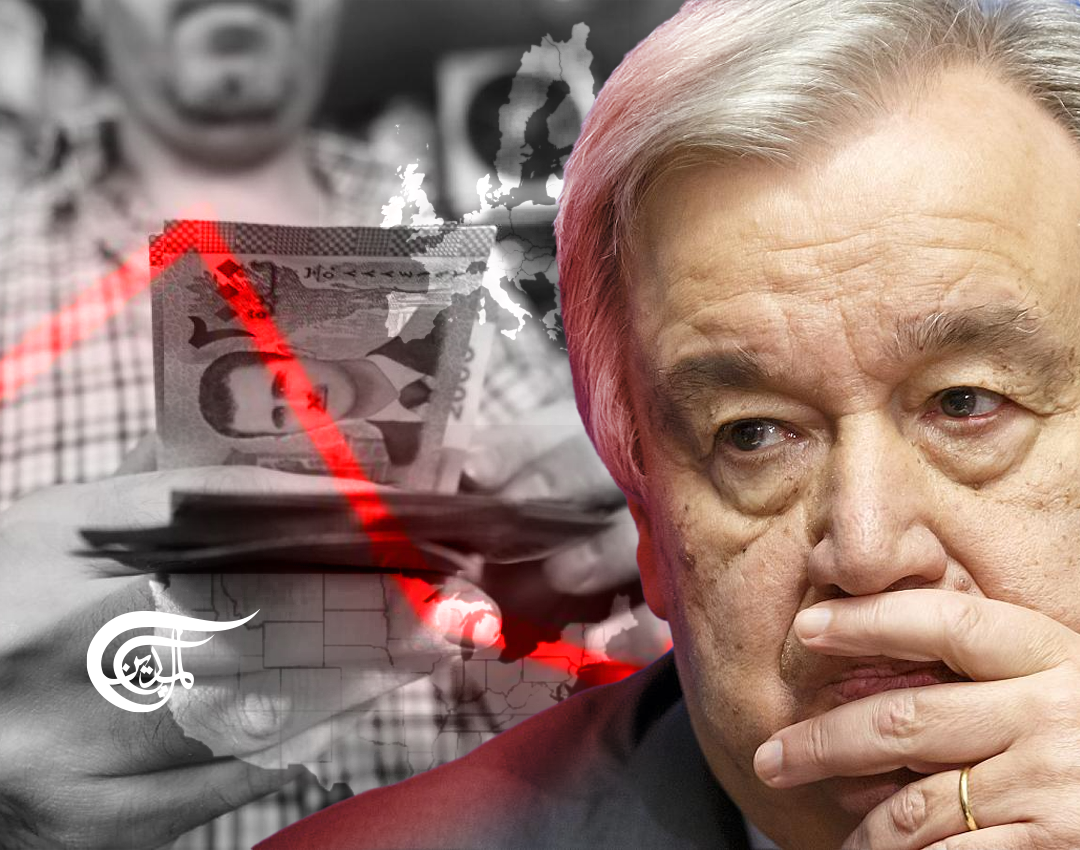War and Economic Blockade Drive Poverty in Syria
There is little controversy about the extreme poverty which most Syrians now experience. The distorted information comes in explanations of who is responsible.
After the decade-long hybrid war, the Syrian people are now in deep poverty, with the UN Secretary-General acknowledging earlier this year that “nine in 10 Syrians now live in poverty, with 60% of the population at risk of going hungry”. That is even higher than the 70% poverty rate often cited for Syrian refugees.
Normal basic salaries in late 2021 range between 80,000 and 100,000 Syrian pounds (25 to 40 US dollars) per month and many have no employment. Syrians rely heavily on family support and government subsidies on basic foods such as bread, rice, and sugar.
There is still free education and free health care in the crowded public hospitals, but everything else has become very expensive.
Three years ago a taxi fare around much of inner Damascus cost 500 lira (about $1), now it can be 5,000 lira ($2), while real incomes have more than halved. Rent on a very basic small room in Damascus costs 200,000 lira per month, twice a normal salary. A single bag of ordinary food items at a supermarket can easily cost 50,000 lira. How people survive is a mystery which has much to do with state support, informal economies, and sharing.
There is little controversy about the extreme poverty which most Syrians now experience. The distorted information comes in explanations of who is responsible.
But there should be no mystery. A decade of proxy war and direct occupation has been accompanied by a savage economic blockade which – like the blockades on Cuba, Venezuela, Iran and Yemen – aims to starve the people, “causing hunger and desperation” to help coerce political change.
Despite their crocodile tears, NATO-dominated United Nations officials have worsened the situation. Citing UN Security resolution 2254 Secretary-General António Guterres effectively blames the Syrian Government, while letting Washington off the hook.
Demanding “a negotiated political settlement” he insists that his representatives preside over the “Syrian led” creation of a new constitution and a “transitional government” in which NATO-backed exiled Syrians have similar status to the elected Syrian Government.
There are three things wrong with the Guterres approach. First, he hides the role of the NATO and Israeli occupation of Syria, which directly abuses the country’s sovereignty while providing a safe haven to the very same terror groups (Jabhat al Nusra, ISIS, and their affiliates) which UNSC 2254 demands must be suppressed. There is now plenty of evidence, including admissions, that the US and its allies armed all the terrorist groups in Syria, with the aim of overthrowing the government in Damascus.
Second, Guterres ignores the illegal unilateral coercive measures (wrongly called ‘sanctions’) imposed on Syria for almost a decade by Washington and the Europeans. Even as UN experts condemn these economic siege measures, Guterres ignores them. But NGOs and the WHO have made it plain that the economic blockade has “dire humanitarian consequences” for Syrian citizens, including the denial of cancer medication to children.
Third, the UNSC resolutions, formulated between 2012 and 2015, spoke of creating a “Syrian-led and Syrian-owned political transition” within 6 months. That was predicated on the idea of “no military solution”.
Yet six years after UNSC 2254, Syria and its allies have militarily resolved most of the terrorism, liberating Palmyra, Aleppo, East Ghouta and the southern region around Daraa. Only the areas occupied by Turkish, Israeli, and US troops provide safe havens for terrorist groups.
When in 2021 Guterres repeats the phrase “there can be no military solution to the conflict”, the principal logic which supports him is the military occupation of parts of Syria, by the two biggest NATO armies plus "Israel", which he refuses to condemn.
The Guterres version of “a negotiated political settlement” is therefore one of interventionist politics, with himself as the compromised external broker, effectively an agent of the occupying powers, and using Syrian poverty as a tool of leverage.
The UN Secretary General correctly points out that millions of children are “out of school” and that “the COVID-19 pandemic has made it all even worse”. However the school problem is mostly in the Turkish and US occupied areas and the US economic blockade has clearly damaged Syria’s response to COVID-19.
Most western reports have focussed on poverty in the foreign occupied parts of Syria, and particularly in al Qaeda-controlled Idlib. One Turkish report claims that “millions of Syrians” have “escaped from conflict zones and settled in Idlib”, during what they and much of the western media falsely call a “civil war”.
However civilian numbers in the Turkish occupied two-thirds of Idlib have been exaggerated – just as they were in occupied Aleppo, up to 2016 – to help justify disregard of the suffering of most Syrians. A 2021 Brookings report claims there are “3.4 million civilians in Idlib—over 2 million of them displaced from elsewhere in Syria”. Even the UNHCR in February 2020 spoke of “over four million civilians in north-west Syria”, without distinguishing between the Syrian Government and Turkish occupied areas.
In this way, the Turkish occupied segment of north-west Syria has become a proxy for the humanitarian problems of all Syrians, according to many western reports.
The Syrian Government estimate of the total population of occupied Idlib in late 2021 (repeated to this writer by Vice Foreign Minister Dr Bashar al Jaafari) is 1.3 million, about a quarter to a third of whom (in this writer’s estimation) are armed groups and their families. The poverty and suffering of the other 18 million Syrians is routinely ignored.
Some UN agencies are now helping Syria. The World Food Program is in several parts of the country and UNICEF is assisting with the construction of Syrian state schools in Syria’s northeast, after the US proxy SDF/QSD militia closed most of the province’s schools.
Yet, like António Guterres, NATO linked analyst Joumana Qaddour of the Atlantic Council draws attention to Syria’s poverty while blaming the US-EU sanctions regime on Damascus. She claims “the sanctions imposed both by the United States and the Europeans [are] really tied to the activity of the Assad regime”, because Damascus is committed to a “military solution” of the problems of terrorism and foreign occupation.
This is reminiscent of the constant North American claims that Cuba’s economic problems are the fault of the socialist government, and not of the 60-year economic blockade of the island, which is overwhelmingly condemned each year at the UN General Assembly.
In other words, UN officials and their NATO masters maintain the occupation and economic blockade, using poverty as a weapon, to coerce their own political agendas. The nice-sounding words of the UN’s Constitutional Committee (a “Syrian-led and Syrian-owned” political process) have become empty rhetoric.
Can Washington achieve its political objectives in Syria by economic blockade, after failing with its terrorist war? Unlikely. The new strategic partners of the independent countries of the region – Russia, China and Iran – are already making their presence felt. No new Syrian constitution will be written in Geneva.

 Tim Anderson
Tim Anderson
 7 Min Read
7 Min Read













